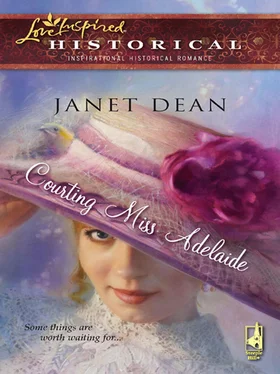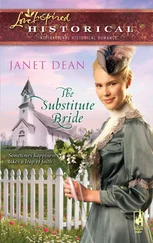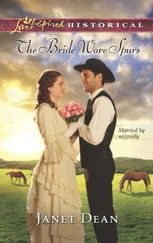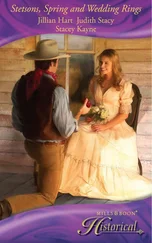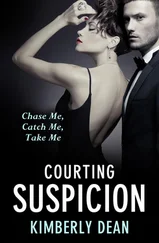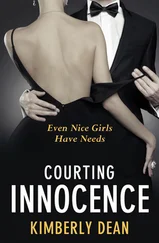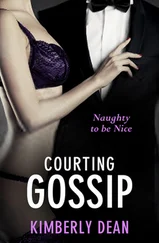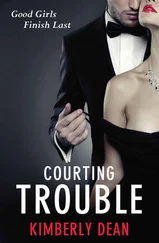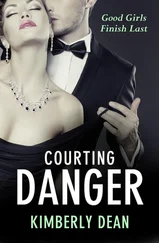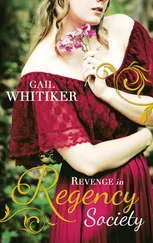At last, she selected the larger block engraved with a most fetching hat, complete with feathers. “I’d like to use this.”
Remembering her mother’s words, she removed her wire-rimmed eyeglasses and stuffed them into her purse.
“Your eyes are pretty either way,” he said softly.
Is he teasing me? “I’ve been told spectacles give me the appearance of an old maid schoolmarm.”
“They give you an air of intelligence.” He met her gaze. “I find intelligent women attractive.”
She fingered the ribbed edge of her collar, her mind whirling around the compliment.
A door slammed. Fannie Whitehall crossed the room, her curly red hair poking out from under a big-brimmed straw hat.
Fannie said hello, and then brushed past Adelaide with as much interest as she’d give a fencepost. She held out two jars topped with a thin layer of paraffin and thrust them into Mr. Graves’s hands. “I brought some of my preserves like I promised.”
Charles looked at the jars like he’d never seen jam before. “Thank you, Miss Whitehall.”
“That jam’s mighty fine on biscuits.”
He gave a lopsided grin. “I’m sure it is, but I’m not much of a cook.”
“I’d make you a batch, but you’d have to bake them.” Fannie let out a giggle. “I always burn the bottoms.”
“Biscuits are my specialty.” The words tumbled out of Adelaide’s mouth. Had she actually said that? Out loud? Apparently she had, judging by the startled expression on both Mr. Graves and Fannie’s faces. “Ah, as a thank-you for the time you spent on my ad.”
“That’s kind of you, Miss Crum,” Mr. Graves said.
Her gaze collided with his and held for several moments, then darted away, then returned. He gazed at her with an intensity that suggested something important was happening, something significant. No man had ever looked at Adelaide like that before. Her hands trembled and she clasped them together, trying to gain control over her traitorous body, especially with Fannie’s sharp-eyed scrutiny.
“I…I’d best be…going,” Adelaide stammered. “I need to get back to the shop.”
“Let me walk you out.” The editor gently guided her by her elbow to the door and then opened it. “I’ll write up the ad and have it ready first thing tomorrow morning.”
The huskiness in his voice set her insides humming and brought an odd tightness to her throat. “I’ll stop by the paper to look at it before I open the shop.”
They said goodbye. Once outside, the sun shone brighter and the sky appeared shades bluer than when she’d walked over to The Ledger. Finding a break in the traffic, she scurried across the street and entered her shop, then glanced back.
Mr. Graves remained in the open doorway where she’d left him. He’d complimented her eyes, even said her spectacles gave her an air of intelligence. No one had ever said anything nicer to her in all her days. Joy zinged through her chest, pushing against her lungs until she could barely breathe.
Then Fannie joined Mr. Graves in the doorway, deflating Adelaide’s mood faster than a burst balloon.
Charles watched Miss Crum cross the street and enter her shop. As the door closed behind her, he detected a little twinge of disappointment. Silly. The lady was a client, nothing more.
Beside him, Fannie cocked her head. “Promise you won’t forget to take the jam home. I put it on your desk.”
“How could I forget?”
She giggled, and then jiggling her fingers at him, she flounced down the walk.
Charles let out a gust of air. He needed to help Teddy get the presses running, but he stayed at the door, thinking not about Fannie, but of Miss Crum.
With his office directly across the street from her shop, he’d noticed since the interviews how little she went out. When he worked late, he’d observe her lamp lit well into the night. After seeing her today, he guessed Miss Crum was a workhorse or an insomniac. Under her pretty blue eyes, dark smudges marred her creamy skin. If he was any judge of people, and in this business he made it a point to be, Miss Crum still suffered from the committee’s rejection.
“Miss Crum’s a looker, though kind of standoffish.”
Charles hadn’t heard Teddy come up behind him. For a burly man he had a light step. Charles purposely turned a cool eye on his assistant, hoping to stop what was coming.
“Yes, sirree, she’s one fine-looking woman. Thinking about courting her?”
Charles scowled. “Where did you get that idea?”
Teddy smiled, putting his whole face into it, annoying Charles. “Oh, I’ve seen you watching her comings and goings. It’s time you quit thinking about asking her and do it.”
“My priority is to get this newspaper in shape.”
“Which you’ve done. Since you’ve taken over, the paper comes out on time and has another section. Why, it looks downright citified.” Teddy swept his arm over the room. “You’ve made this your life. A lonely way of living, that’s sure.”
The truth slammed into Charles. He was lonely. Since he arrived in town, Fannie had come by the paper with one excuse after another. But her giggling and incessant chatter put a knot in his stomach. From what she’d said, she didn’t even read the newspaper.
No, he liked the appearance and manner of Miss Crum. “I’ve considered asking her to dinner,” he said before he thought.
“Miss Whitehall or Miss Crum?”
“Miss Crum.”
Teddy raised his brows. “So, what’s stopping you?”
“A woman who applied for an orphan would have only one thing on her mind—getting married and having babies of her own. I’ve no intention of tying that knot.”
Teddy scratched the back of his neck, peering at him with mild hazel eyes. “You running away from matrimony, boss?”
Shoving his hands into his pockets, Charles studied the floor, and then raised his gaze. “In my experience, Teddy, if you smile twice at a woman, she starts planning your wedding.” His hand left his pocket and pushed through his hair. “What makes women think they know a man better than he knows himself?”
Teddy hooted. “They do, that’s a fact.” His eyes disappeared in a lopsided grin, a grin fading faster than morning glories at noon. “What’s wrong with marrying? My Grace is a good woman, takes care of me just fine. Gave me four sons,” Teddy said, his tone laced with pride.
Countless Sunday mornings, Charles had seen Miss Crum set off for church, dressed to the hilt from the shiny tips of her shoes to the top of her elaborate hat, clutching the Good Book. Yes, a fine Christian woman. As different from him as any woman he’d ever known. Exactly why this sense of a connection between them wasn’t logical.
If Charles really cared about Miss Crum, he’d stay away.
But he had no intention of sharing that with Teddy. “We’d best get to work or we won’t get this edition out.”
Teddy gave him a long, hard look before heading inside. Once they had the presses running, Charles strode to his desk. Miss Crum’s dismay at the disorder he worked in made him as uncomfortable as having his knuckles rapped by his first-grade teacher. He began organizing the clutter and then stopped.
He wasn’t going to let any woman walk in here and, with one disapproving glance, change the way he ran his office. If he did, next thing he knew, she’d be running his life.
Tousling the paperwork, he restored the desk to its original state and for good measure, dumped the cup of pencils. Slumping into his chair, he eyed the mess with grim satisfaction, promising to steer clear of Miss Crum.
Yet loneliness washed over him, leaving him hollow. Empty. Unlike Fannie, unlike any woman he’d known, Miss Crum captivated him. Though he fought it, he craved substance. Biscuits instead of jam. But that meant letting someone get close. Even a woman like Miss Crum, whose guileless blue eyes tugged at the rusty hinges of his heart, needed to be held at arm’s length.
Читать дальше
